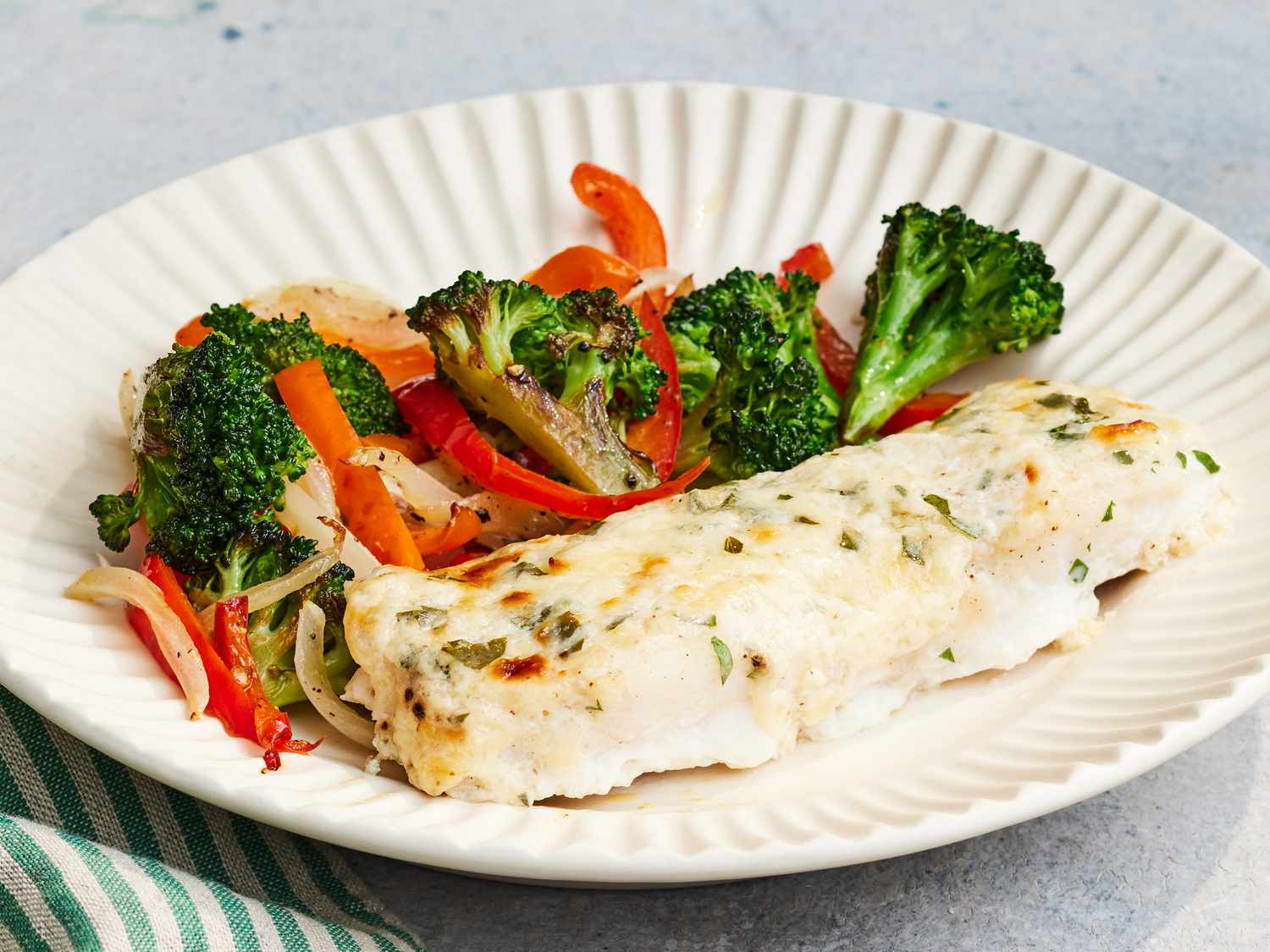
Ever wondered what's swimming around in your fish sticks or nestled inside that crispy fish sandwich? Chances are, it's pollock, a fish that doesn't just taste good but packs a punch in the nutrition department too. Pollock is like the unsung hero of the seafood world, quietly contributing to our health without making a big splash. But what makes this fish so special, nutrition-wise? Loaded with proteins, omega-3 fatty acids, and various vitamins and minerals, pollock stands out as a healthy choice for anyone looking to boost their diet. Ready to dive deeper into the sea of facts about pollock's nutritional benefits? Let's reel in the details and discover why this fish deserves a spot on your plate.
Key Takeaways:
- Pollock is a super nutritious fish, packed with protein, vitamins, and minerals. It's great for your muscles, heart, and overall health, and it's low in fat and calories too!
- You can enjoy pollock in many tasty dishes like fish tacos, stir-fry, and healthy fish and chips. It's good for your heart, helps with weight management, and supports mental and physical health.
What Makes Pollock a Nutritional Powerhouse?
Pollock, often overshadowed by more popular fish, stands out due to its impressive nutritional profile. This lean fish is not only a great source of protein but also packs a variety of vitamins and minerals essential for good health.
-
High in Protein: Pollock is an excellent source of high-quality protein, crucial for muscle repair and growth. A 3-ounce serving provides about 18 grams of protein, making it a fantastic choice for those looking to maintain or increase muscle mass.
-
Low in Fat: With just 1 gram of fat per serving, pollock is an ideal option for individuals following a low-fat diet. Its minimal fat content helps support heart health and weight management.
-
Rich in Omega-3 Fatty Acids: Omega-3s are essential fats the body cannot produce on its own. Pollock contains these fats, which are known for their anti-inflammatory properties and benefits to heart health.
-
Packed with Vitamins: This fish is a good source of several vitamins, including B12, B6, and niacin. These vitamins play vital roles in energy production, brain function, and overall health.
-
Mineral Content: Pollock provides essential minerals such as phosphorus, selenium, and magnesium. These contribute to bone health, antioxidant defense, and muscle function.
How Does Pollock Support Heart Health?
The nutritional components of pollock contribute significantly to cardiovascular health.
-
Omega-3 Fatty Acids Lower Heart Disease Risk: The omega-3 fatty acids in pollock help reduce triglycerides, lower blood pressure, and decrease the risk of heart disease.
-
Low in Saturated Fat: Unlike many animal proteins, pollock is low in saturated fat, which is beneficial for maintaining healthy cholesterol levels and supporting heart health.
Can Pollock Aid in Weight Management?
Incorporating pollock into your diet can be a smart strategy for weight management due to its nutritional makeup.
-
Low Calorie Content: A 3-ounce serving of pollock has only about 90 calories, making it a low-calorie protein option that can fit into various diet plans.
-
Protein Satiety: The high protein content in pollock helps you feel full longer, reducing the likelihood of overeating and aiding in weight loss efforts.
The Role of Pollock in a Balanced Diet
Pollock's nutritional benefits make it a valuable addition to a balanced diet, contributing to overall health and well-being.
-
Versatility in Cooking: Pollock can be prepared in numerous ways, including baking, grilling, and frying, making it easy to incorporate into meals.
-
Allergy-Friendly: For those allergic to shellfish or other types of fish, pollock can be a safe and nutritious alternative.
-
Sustainability: Pollock is considered a sustainable seafood option, making it an environmentally friendly choice for those concerned about overfishing and marine health.
Nutritional Comparison with Other Fish
When compared to other popular fish, pollock holds its own in terms of nutritional value.
-
Lower Mercury Levels: Pollock generally has lower mercury levels than larger predatory fish, making it a safer option for regular consumption.
-
Comparable Omega-3 Levels: While some fish like salmon may have higher omega-3 content, pollock still provides a significant amount of these essential fats.
-
Cost-Effective: Often more affordable than other fish, pollock offers great nutritional value without breaking the bank.
Unique Health Benefits of Pollock
Beyond the general nutritional advantages, pollock offers specific health benefits that make it stand out.
-
Supports Mental Health: The omega-3 fatty acids in pollock are linked to improved mood and cognitive function, suggesting benefits for mental health.
-
Promotes Healthy Skin: The vitamins and minerals in pollock contribute to skin health, promoting a healthy glow and potentially reducing the signs of aging.
-
Aids in Pregnancy: Due to its low mercury content and high nutritional value, pollock is a safe and beneficial choice for pregnant women, contributing to fetal development.
-
Boosts Immune System: The selenium in pollock is a powerful antioxidant that supports the immune system, helping to fend off illness.
-
Improves Eye Health: Omega-3 fatty acids are also known for their role in eye health, potentially reducing the risk of age-related macular degeneration.
How to Incorporate Pollock into Your Diet
Adding pollock to your diet is simple and can be done in a variety of delicious ways.
-
Fish Tacos: Use grilled or baked pollock as the protein base for a tasty and nutritious fish taco.
-
Healthy Fish and Chips: Swap traditional battered fish for a baked pollock fillet served with oven-roasted vegetables for a healthier take on this classic dish.
-
Pollock Stir-Fry: Combine pollock with a mix of colorful vegetables and a light sauce for a quick and healthy stir-fry.
-
Fish Burgers: Ground pollock can be used to make flavorful fish burgers, a great alternative to red meat.
-
Salads: Top your favorite salad with grilled pollock for an extra protein boost.
Conclusion
-
Nutrient-Dense: Pollock is a nutrient-dense food, offering a wide range of vitamins, minerals, and omega-3 fatty acids with low calories and fat.
-
Heart-Healthy: Its composition makes pollock particularly beneficial for heart health, supporting healthy cholesterol and blood pressure levels.
-
Weight Management: The protein content and low calorie count of pollock aid in weight management, making it an excellent choice for those looking to maintain or lose weight.
-
Mental and Physical Health: Consuming pollock can have positive effects on both mental and physical health, from improving mood and cognitive function to supporting muscle and bone health.
-
Accessible and Sustainable: As a cost-effective and sustainable seafood option, pollock is accessible to a wide audience, promoting both personal health and environmental responsibility.
-
Versatile in Cooking: With its versatility in cooking and preparation, pollock can easily become a staple in a balanced and nutritious diet, contributing to overall health and wellness.
A Final Scoop on Pollock's Nutritional Benefits
Pollock stands out as a stellar choice for anyone looking to boost their diet with nutritious seafood. Packed with lean protein, omega-3 fatty acids, and a variety of vitamins and minerals, this fish supports heart health, brain function, and overall well-being. Its low mercury content makes it a safer option, especially for pregnant women and young children. Plus, its versatility in the kitchen means you can enjoy it in countless dishes, from baked fillets to fish tacos. Opting for Pollock not only benefits your health but also supports sustainable fishing practices, making it a smart pick for eco-conscious consumers. Next time you're at the market, consider grabbing some Pollock. It's a simple step that could have a big impact on your health journey.
Frequently Asked Questions
Was this page helpful?
Our commitment to delivering trustworthy and engaging content is at the heart of what we do. Each fact on our site is contributed by real users like you, bringing a wealth of diverse insights and information. To ensure the highest standards of accuracy and reliability, our dedicated editors meticulously review each submission. This process guarantees that the facts we share are not only fascinating but also credible. Trust in our commitment to quality and authenticity as you explore and learn with us.


